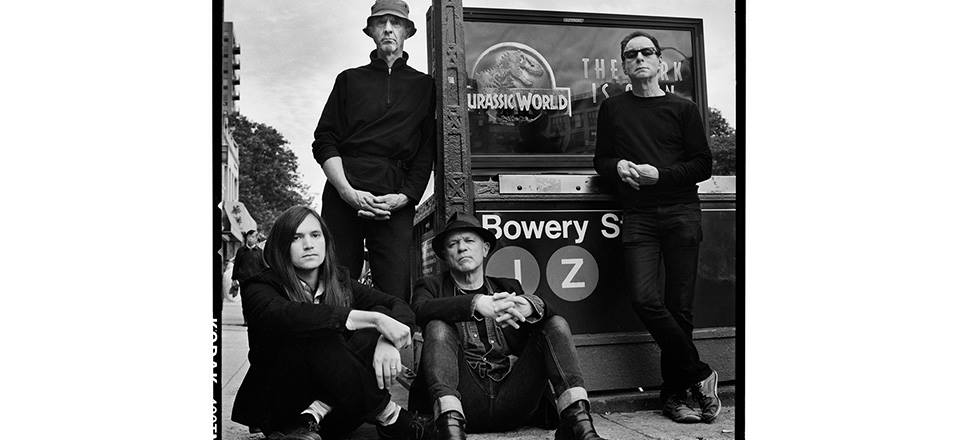At first glance, the Imperial seemed like an odd venue to host a legendary punk band. It’s a far cry from a grimy dive bar and not quite what you’d expect to find in the area around Main and Hastings. In 2007, the former-Chinese theatre underwent a complete $2.5 million renovation. Granted, by now, it’s in the ever-growing outskirts of Gastown and the gentrification that creeps with it further and further into the DTES. “It’s very… Vancouver,” my friend said, looking at the life-size terracotta warrior replications adorning the walls and overlooking the crowd. The audience in attendance was comprised of upper-middle class and middle-aged participants, most of whom I assume grew up listening to Wire’s music. There were also a few obvious punks scattered around, young and old.
Golden Retriever, the opening act, are an acoustic-electronic duo from Portland. Using modular synthesizers and a bass clarinet to create melodic-atmospheric sonic dynamics, they define themselves as “acoustic-electronic.” Personally, I’d never heard a bass clarinet plugged into a daisy chain of effect pedals. The clarinet’s signal, plugged in at the mouthpiece, was sent through a pitch shifter, reverb and much more while the synthesizers droned or oscillated underneath. I would have never guessed that those sounds came from a clarinet had I not seen the instrument in action.
The performance neglected the use of any continuous beat, but rather the rhythms for each song came from the modulations of the synth. It was an interesting opening act to say the least: not what anybody at the venue expected, but, for once, it was something entirely new. Shortly after their set ended, the venue was packed full as the participants who eagerly waited for the main act.
For the uninitiated, Wire’s impact on the musical world is that they laid the foundations for the many eventual variants of punk, from post-punk to hardcore, and alt-rock as a whole. Since their debut album in 1977, Pink Flag, they have been recognized as pioneers of art-punk for blending the grit of the early British punks such as the Sex Pistols with the attitude and sensibilities of synthesizer art-pop, as well as a tendency for more complex song structures. The band’s commercial success does not equate to their enormous influence, but it’s been over 40 years since the band’s origin. Maybe it was ironic to watch Colin Newman (frontman, rhythm guitarist, and founding member) looking down at an iPad while playing, but times have certainly changed. Drummer Robert Grey displayed a stoic pose with his eyes closed and chin up throughout the set. The entire audience sang along to the incredibly catchy “Three Girl Rhumba,” and while most of the set was comprised of their more recent material, the music never faltered. There were plenty of shouted song titles from the slightly drunk crowd, but the band kept their own agenda and played an incredibly well-rehearsed set, complete with an encore. All I can really say is, “They’ve still got it.”


